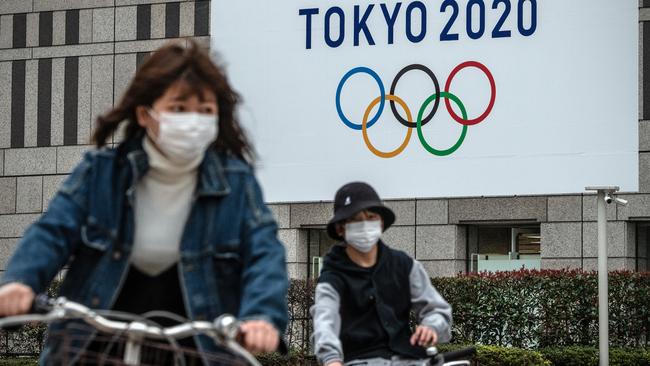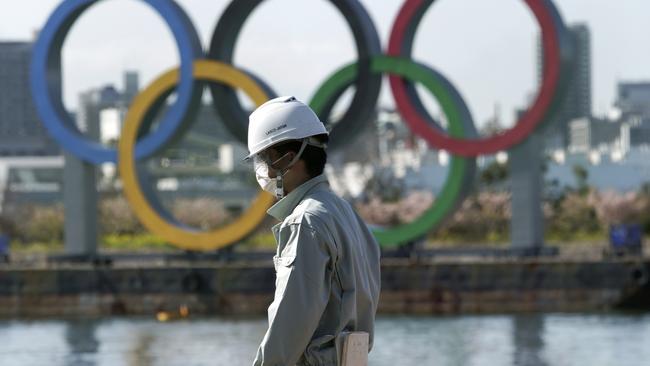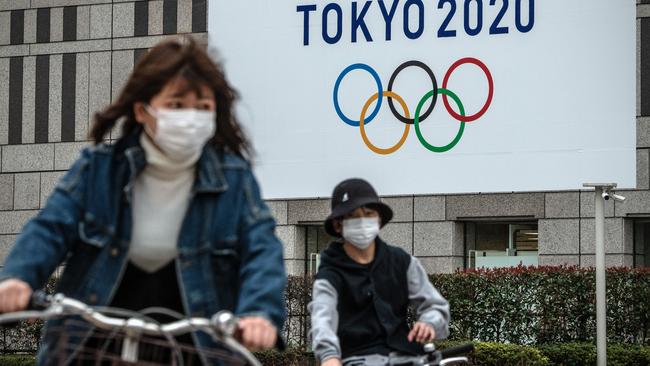Why the Tokyo Olympics should be postponed
The only course of action for the International Olympic Committee and the Japanese organisers now is to postpone the Games for at least another year and hope the COVID-19 crisis is resolved by then.

Olympics
Don't miss out on the headlines from Olympics. Followed categories will be added to My News.
It’s already too late to save the Tokyo Olympics this year.
Even if they go ahead — and that’s a very big if right now — the biggest multi-sports event on the planet has been compromised.
The only course of action for the International Olympic Committee and the Japanese organisers now is to postpone the Games for at least another year and hope the COVID-19 crisis is resolved by then.
It’s understandable why Olympic officials are dragging their heels on making the hard call because no-one, at least in sport, truly understood the full gravity of the unfolding catastrophe until the last few days.
Watch over 50 sports LIVE on Kayo! Stream to your TV, mobile, tablet or computer. Just $25/month, cancel anytime. New to Kayo? Get your 14-day free trial & start streaming instantly >

The repercussions of cancelling or postponing the Olympics are far greater than in any other sports event because this is the biggest peaceful gathering on the planet so there’s just no easy solution.
That’s why the IOC’s heads will be spinning as they contemplate the unthinkable while holding out for a miracle.
Who’s to say that won’t happen because the situation is changing so rapidly that things could be back to normal when the Olympics are due to start on July 24 — still four and a half months from now.
There’s enough signs from Asia, where the coronavirus first struck, to suggest things will get better but as more and more cases emerge in the rest of the world, time is running out and the Olympics just won’t be the same even if they do proceed.
The Games are meant to be a worldwide celebration of humanity, a time when the whole world can join in watching and admiring the finest athletes on the planet competing under the official creed that "the most important thing in the Olympic Games is not to win but to take part, just as the most important thing in life is not the triumph but the struggle”
That’s a noble concept but the notion of the world sitting back and cheering on athletes taking part in sports events will seem frivolous at best if the death toll, human misery and economic fallout is as grim as the experts are forecasting.

The IOC is standing by its line that it’s still business as usual and a final decision doesn’t need to be made until the end of May so they still have time but they really should make the call before then, in fairness to the athletes if no-one else.
And the issue of fairness is central to why the Games should be postponed.
The coronavirus outbreak has already created such an uneven playing field for the athletes that the Latin motto Citius, Altius, Fortius (faster, higher, stronger) just won’t apply this time.
The preparations of far too many athletes have already been destroyed by the lockdowns and bans on mass gatherings.
With borders closing and increased restrictions on international travel, most athletes don’t even know if they’ll even make their Olympic teams yet because this is prime time for qualifying.
Dozens of Olympic qualifying competitions have already been postponed, leaving organisers facing a logistical nightmare just to figure out which athletes will be allowed to compete at the Olympics and athletes stuck in the dark.
Though that’s probably the least of their concerns right now.
Already plenty of athletes have tested positive to the coronavirus and through no fault of their own, it’s inevitable that some athletes will be barred from competing because they shook hands with a neighbour or sat next to the wrong person on the flight over to Japan.
COVID-19 doesn’t discriminate so nor should the IOC.
Training camps and practice events have been cancelled while some athletes — the unlucky ones whose countries have been hit the hardest — can’t even train because they’re locked in their own homes.
If that means the differences between winning and losing will be reduced to a lucky dip then that’s the IOC’s cue to call it off and start again next year.
Originally published as Why the Tokyo Olympics should be postponed
